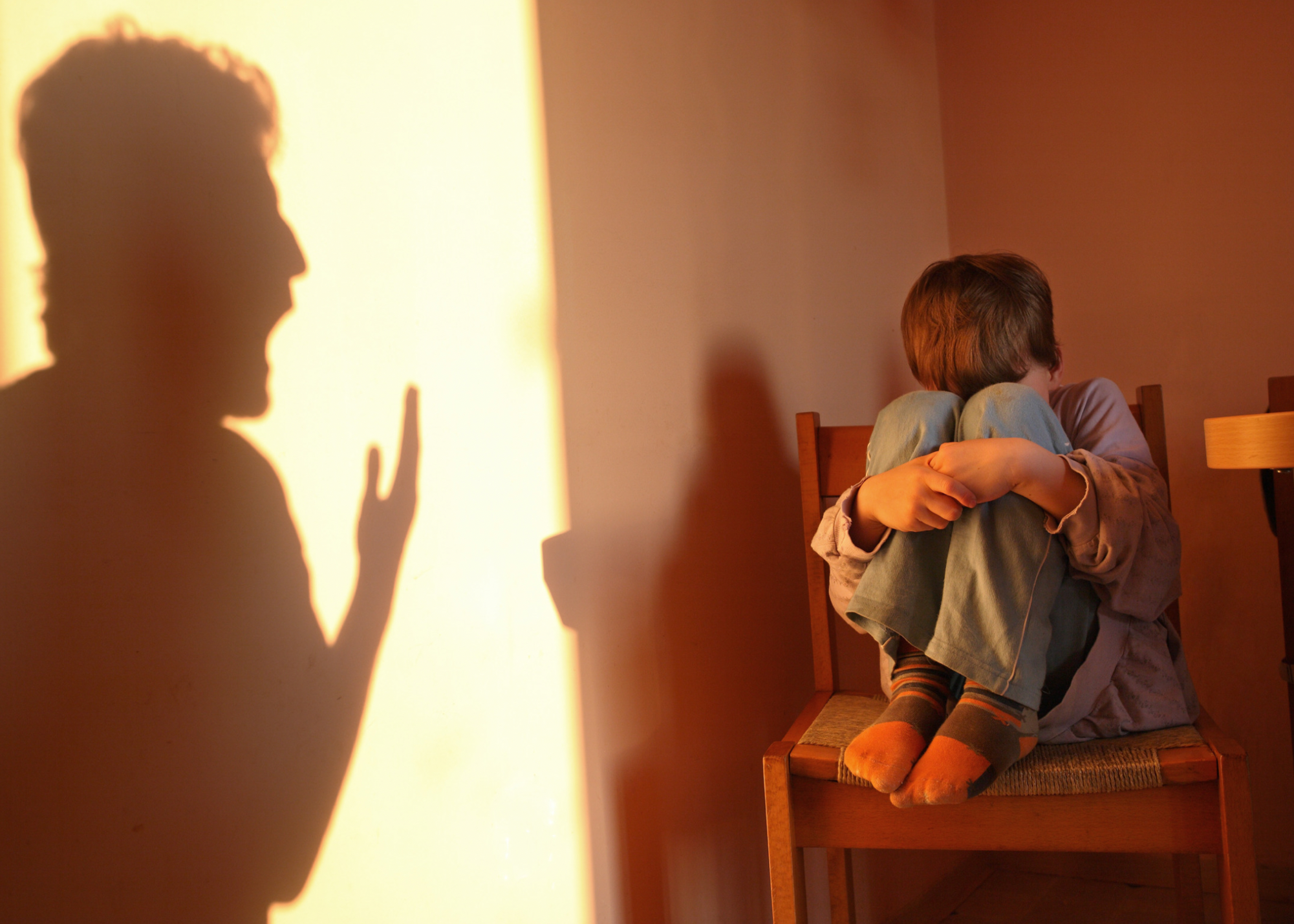
Vol. 19: Practicing the Principles of Unconditional Parenting
I need to be honest with you about something: I have a short fuse regarding incompetence and lack of clear verbal communication. Simply put, I can't hang with the ignorance is bliss crowd, and nothing irks me more than conversating with someone who struggles with vocalizing their wants and needs.
But I'm working on that. And not only because I live with a six-year-old boy, either.
I strive to show kindness to all people (even the less than moderately intelligent). And to do that, I must practice empathy. There is no other option.
Children are at the forefront of all the people in this vast world that need my empathy the most.
Why?
Because they're new here, their big feelings and limited life experience make them susceptible to emotional harm if not handled carefully.

However, unfortunately so, most adults treat children as if they are the sum of their good and bad behavior. After all, that's the way their parents were, and their parent's parents too.
It's our conditioning to blame.
But, like our inherited addictions and generational familial dysfunction, we can break the cycle.
I heard Gabor Maté speak in an interview, and he told a story about a diary entry his mother made when he was six weeks old in 1944. This story touched me deeply.
In her writing, his mother described a scene of a sleepless night for her and baby Gabor, as he cried and screamed for her attention, yet she painstakingly waited for hours to pick up her crying son and feed him. She did so because the doctor's ordered her to adhere to a strict schedule rather than her baby's vocal cues.
She didn't want to displease the doctors, so she ignored her maternal instinct. Dr. Maté's mother isn't the one to blame, though; human conditioning is.
This is what we tell parents. We ask them to sleep-train their kids by not picking them up. Hunter-gatherer tribes, you know what they do? They never put their kids down. In the state of nature, creatures don't put their kids down. That doesn't mean you're permissive, but you're also not demanding the child suppress their feelings to be in your presence. You don't hold the relationship as ransom against them.

Unconditional Parenting
We live in a conditional society, but many realize the inherently dangerous nature of treating one another in this manner.
When we treat our children as if our love is conditional, meaning they must perform in a precise way to receive it, we are abandoning our responsibility as parents to love our children no matter what.
I touched on this a bit in Vol. 9: Triggers, Trauma & Unconditional Love, and if you haven't yet read that article, I highly recommend it.
According to Alfie Kohn, writer and speaker on issues related to human behavior, education, and parenting, what our children most need from us as parents is simply one thing:
Unconditional Love.
Inspired by Kohn's book Unconditional Parenting—published in 2005 and still receiving mixed reviews and varying opinions from parents in need—I compiled the ten main principles of ‘Unconditional Parenting’ and how we can begin applying them in our lives now.
#1: Consider Your Requests
Perhaps it's what or how we articulate our requests that cause our children not to respond favorably. Maybe we should reconsider what it is we're doing. For instance, are you sure you want to trick the kid into doing what you want? Instead, think about how you would like another human being to treat you, especially when you spend the majority of your time with someone who seems to be constantly telling you what to do.
#2: Put the Relationship First
Being right isn't necessarily what matters; it matters very little if your children stiffen when you walk into the room. What matters is the connection, the alliance, and mutual respect. From a practical viewpoint, the relationship counts, where the child feels safe enough to explain why they did something wrong. Consider this: Is it worth any potential injury to the relationship when you put your foot down simply because you are in the right?
#3: The Love Must Come Without Conditions
Love withdrawal is conditional love. And, when it does work, the cost you are paying is too high. It's like telling your children, "You have to earn my love." Kids require a love that never stops coming and affection they don't have to earn. They need to hear, instead, "No matter what you do, I will never stop loving you."
There is that, too, which gives the opposite message; positive reinforcement when they are good—this looks like using items to display love or a tool to control.
But you cannot have it both ways. Why? Because children will look for that when we commend them for making our lives easy. The more we praise them, the more insecure they become and the more dependent they become on our approval.
We must tell our kids they are loved even when they screw up or fall short. Children need to know we love them for who they are, not what they do.

#4: Put Yourself In Their Shoes
Look at the world from their point of view! The more you do that, the better a parent you tend to be.
Ask yourself how it makes your child feel when you say x, y, or z. Imagine how your friends or relatives influence your child's attitude.
From a young child's point of view, we're interfering with what looks fun when we're only trying to keep them safe from danger.
Try to see the world through a child's eyes every once in a while. It's beneficial for adults to do this in more ways than one.
#5: Always Be Authentic
Especially as parents, we must not forget our humanity. Don't pretend to be more competent than you are. Apologize to your child now and then.
If you're anything like me—an imperfect human being—you'll find a reason to say, “I’m sorry, kid,” I assure you.
#6: Talk Less, Listen More
Listen, respond, elicit, and imagine your child's perspective, which will aid you in better parenting and make you a better partner, manager, and colleague.
Ask your kid, "What is your perspective on this situation?"
Kids love to feel included and like their opinions and ideas matter. Good parenting includes listening.
#7: Assume the Best
Attribute to children the best possible motive consistent with the facts. Why assume the child was trying to make you unhappy? Children of a certain age cannot understand promises or sit still for an extended family dinner.
Don't assume the worst. We do not always know why kids do things.
Kids will live down to our negative expectations.
So, please, always consider the best in them.

#8: Try to Say YES, When You Can
I get it; not every day can be a "Yes Day," but do not say "No," constantly.
Of course, sometimes you have to say No. Understand, however, that kids don't get better at coping with unhappiness when they are deliberately made unhappy from a young age.
If you say "Yes," twice as often as you do now, they will still get plenty of opportunities to deal with frustration. Choose your battles. But never say "Yes," out of laziness. Instead, provide guidance and support while parenting mindfully.
#9: Don’t Be Rigid
Waive the ordinances.
Be flexible.
Respond differently to different children and cases, understanding the context.
Predictability is good, but don't make a habit of it. A united front is dishonest. It's much more helpful for kids to witness us disagree on things and then communicate our way into a solution.
#10: Let Kids Decide, Whenever Possible
Support their autonomy by bringing them into the decision-making process. It boosts our children's self-esteem when we allow them a bit of authority.
I'm not talking about the big decisions here; the kids don't need to offer up input on which lender to go with for the home loan refinance. But providing three or four different lunch options and letting them choose which to eat can go a long way.
Remember, the way kids make good decisions is by making decisions. So let them decide unless there is a compelling reason not to.
THIS WEEK’S LINKS:
10 Ways to Be a Better Parent from Parents.com
Dr. Gabor Maté - Child Development & Parenting / Articles & Interviews
How to Practice Unconditional Parenting Using Love and Reason with Dr. Robyn Silverman (Podcast)
Conscious Parenting Isn’t About Your Child, But Your Inner Child by Dr. Shefali Tsabary

Post a comment